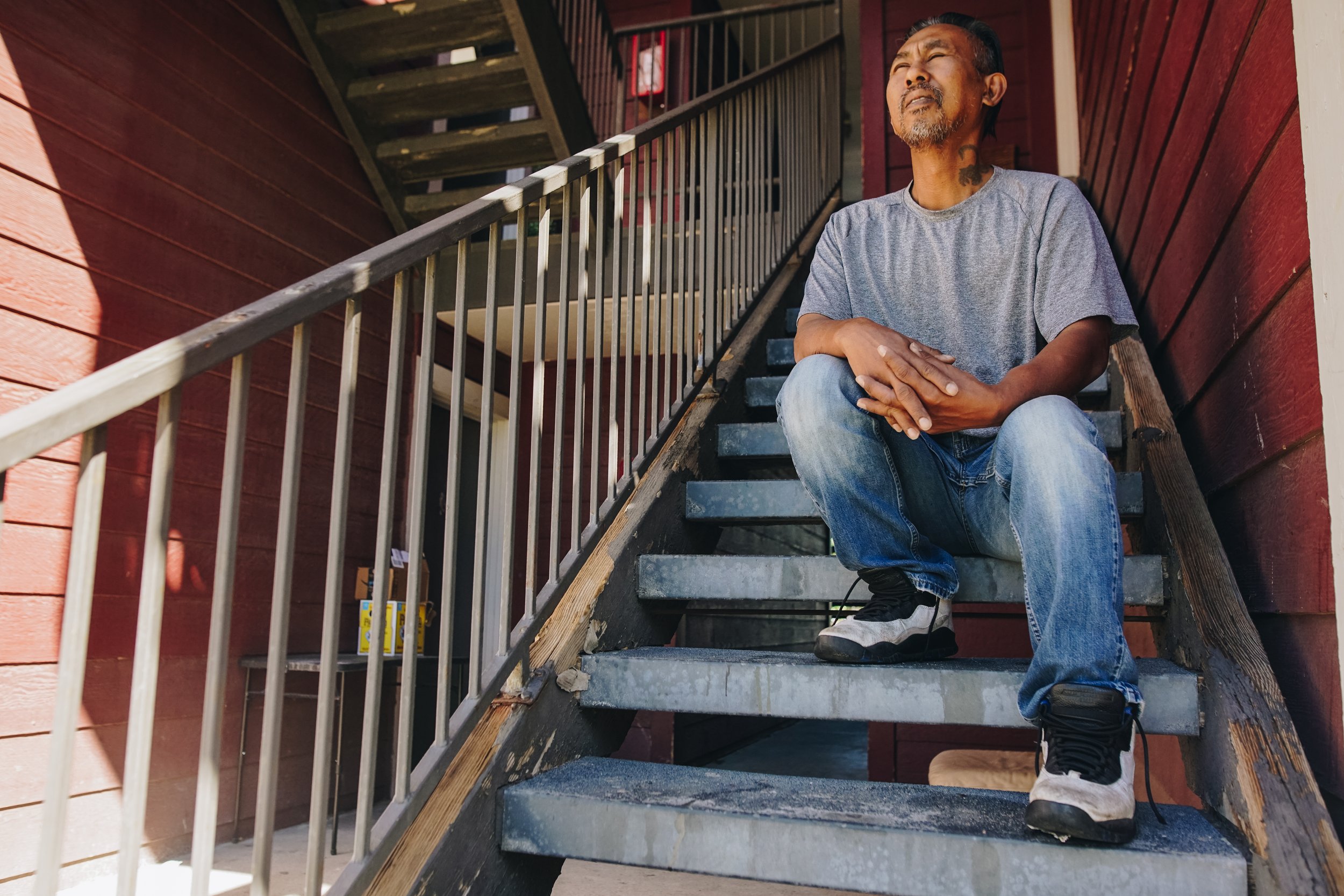Jarun Laws
Jarun Laws has been a cook since high school. Though he never made a ton of money working in kitchens, he’s always been good at it and the work made him feel productive. In 2012, as a father of two, he lost nearly everything. His father died two years prior, and his breakup took a huge financial and mental toll on him.
"I never recovered fully from the bad breakup, I'm still suffering from parts of it," Laws said. "I just can't afford a home, and I still work full-time jobs."
He had to continue working to support his children and pay off his car, and he said for six years, he lived in the parking lot of a restaurant as he couldn't afford rent and gas. After child support payments and other expenses, he only received $200 every two weeks between his two jobs, but he kept making sacrifices for his kids' futures. He used whatever money he had left to get a hotel for himself and his kids on weekends.
"I was alone, and I felt I had no help from anybody," Laws said. "I felt the world turn its back on me."
Laws lost his cooking job at the start of the pandemic. He found work at a local Safeway, where he worked for three years, though he suffered a back injury that put him out of work again. He's since found a job at a hotel and briefly tried driving for Doordash.
Some of his former coworkers found out he was living in his car, and they helped him find a place and pay rent. He saved up some money from his new job and got caught up on bills. Eventually, he needed to find a new place to live, and he couldn't find a situation that would work for him and his kids. After trying out living with roommates, he went back to living in his car.
For a decade, Laws tried everything he could to keep going and be the best father he could. He sent in applications for financial assistance to various Denver-based organizations, asked everyone he knew about housing and career advancement opportunities, and did everything he could to get people to listen to his story. He couldn't find any programs for people in his situation, as many were catered to those recovering from drug addiction or with criminal records.
All to no avail — until 2022.
After years of applications, Laws reached out to the Family Promise of Greater Denver, an organization that helps families experiencing or at risk of homelessness, and he was able to temporarily move into secure housing. His case manager told him about the DBIP, and he sent in an application.
He received $6,500 upfront, followed by monthly payments of $500. It allowed him to get an apartment, get furniture, eat healthier, and spend more time with his kids. He was also able to pick up another job to build up his savings. Throughout the project, he said he felt needed and supported by those around him, which gave him the desire to achieve something with his life.
"When I was homeless before the DBIP even accepted me, I had questioned myself if I was going to be a good father to my children because I was suffering," Laws said. "When I got accepted, it changed my life. It brought joy to my heart, it brought me and my children together."
- story courtesy of Noah Sheidlower, Business Insider interview

